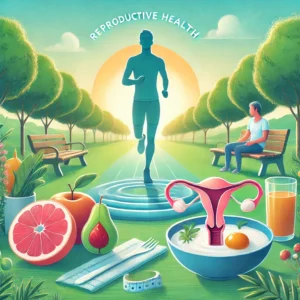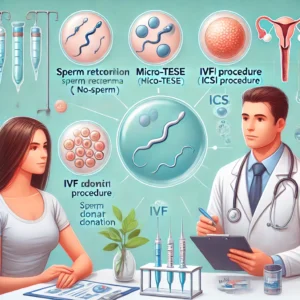
My sperm count is zero how to increase
My Sperm Count is Zero – How to Increase It? Having a zero sperm count, also known as azoospermia, can be a distressing condition for

Natural treatment for Non obstructive azoospermia. Non-obstructive azoospermia (NOA) is a condition in which a man has no sperm in his semen due to poor or absent sperm production. This can be caused by hormonal imbalances, genetic factors, or testicular dysfunction. While conventional treatments include medications, hormone therapy, or surgical sperm retrieval, many men seek natural treatments to improve their fertility. In this article, we will explore various natural remedies, lifestyle changes, and dietary habits that can help manage non-obstructive azoospermia.
Non-obstructive azoospermia is different from obstructive azoospermia, where sperm production is normal, but a blockage prevents sperm from reaching the semen. In NOA, the body does not produce enough sperm due to testicular or hormonal issues. Some common causes include:
While medical treatments are available, certain natural approaches may help improve sperm production and overall reproductive health.
A well-balanced diet plays a crucial role in improving sperm health. Some essential nutrients for sperm production include:
Antioxidants help protect sperm from oxidative stress, which can damage sperm cells. Foods rich in antioxidants include:
Zinc is essential for sperm production and testosterone levels. Foods high in zinc include:
Vitamin D deficiency is linked to low testosterone levels and poor sperm quality. Sun exposure and foods such as fatty fish, egg yolks, and fortified dairy products can help increase vitamin D levels.
Omega-3 fatty acids improve sperm membrane fluidity and motility. Sources include:
Certain herbs have been traditionally used to boost male fertility and support sperm production.
Ashwagandha is an adaptogenic herb that helps reduce stress and improve sperm count and motility. Studies suggest that ashwagandha supplementation may enhance testosterone levels and sperm production.
Maca root is a Peruvian herb known for its fertility-boosting properties. It may help improve sperm concentration, motility, and overall reproductive health.
This herb has been used to enhance libido and support testosterone levels, which may aid sperm production.
Shilajit is a natural mineral-rich substance that may improve sperm motility and count by enhancing testosterone levels and reducing oxidative stress.
Simple lifestyle changes can have a significant impact on sperm production and overall fertility.
Obesity is linked to hormonal imbalances that may affect sperm production. Regular exercise and a balanced diet can help maintain a healthy weight and support reproductive health.
Chronic stress leads to increased cortisol levels, which can negatively impact testosterone production. Practicing relaxation techniques such as meditation, deep breathing, and yoga can help reduce stress and improve fertility.
Excessive heat exposure can reduce sperm production. Avoid prolonged use of hot tubs, saunas, and tight underwear to maintain optimal testicular temperature.
Excessive alcohol and caffeine consumption may negatively impact sperm production. Reducing or eliminating these substances can help improve fertility.
Moderate physical activity helps improve blood circulation, regulate hormones, and maintain a healthy weight, all contributing to sperm production. However, excessive exercise or overtraining may lower testosterone levels, so a balanced workout routine is ideal.
Toxins and environmental pollutants can harm sperm production. Avoiding exposure to chemicals, heavy metals, and pesticides by consuming organic foods and drinking purified water can help detoxify the body and support reproductive health.

My Sperm Count is Zero – How to Increase It? Having a zero sperm count, also known as azoospermia, can be a distressing condition for

My Husband Has No Sperm – How Can I Get Pregnant? My husband has no sperm – how can I get pregnant? Discovering that your

Prolistem, a patented formula, has not been evaluated by the Food and Drug Administration. This product is not intended to diagnose, treat, cure, or prevent any disease.
Copyright © 2025 Prolistem®
Prolistem, a patented formula, has not been evaluated by the Food and Drug Administration. This product is not intended to diagnose, treat, cure, or prevent any disease.
Copyright © 2023 Prolistem®